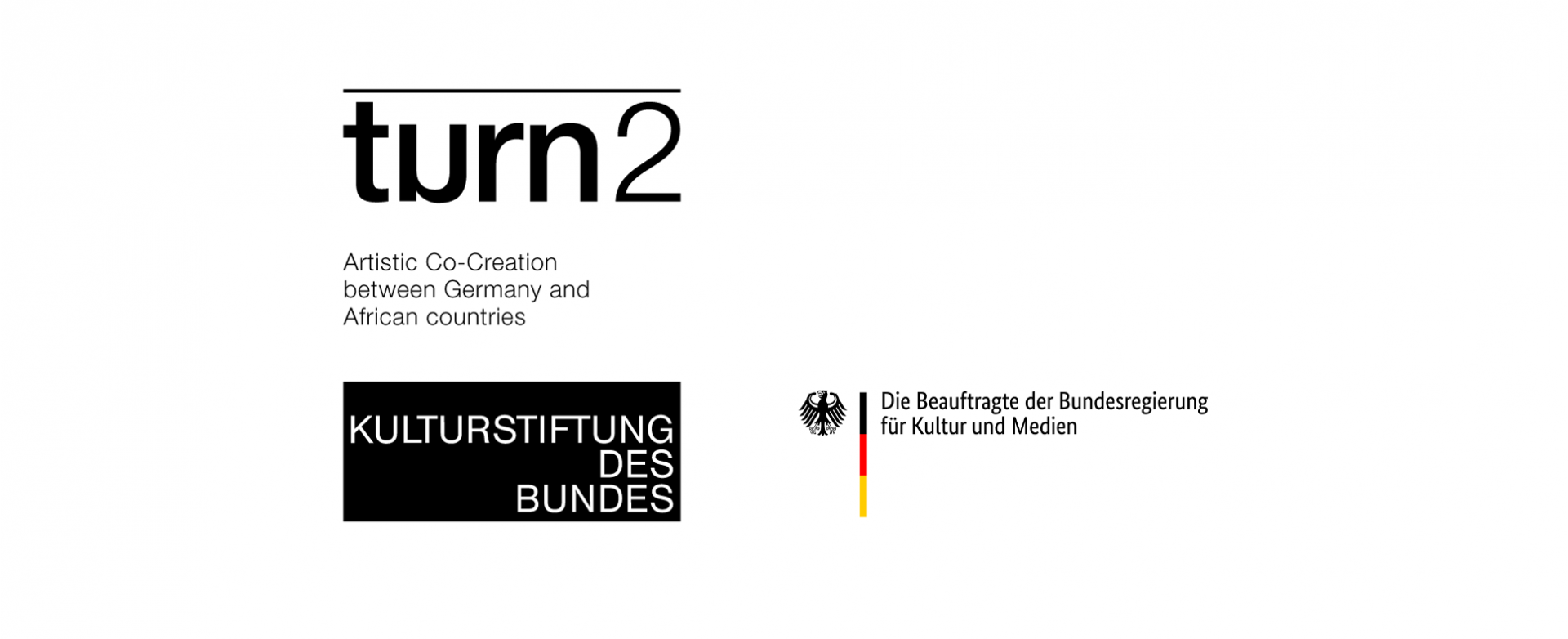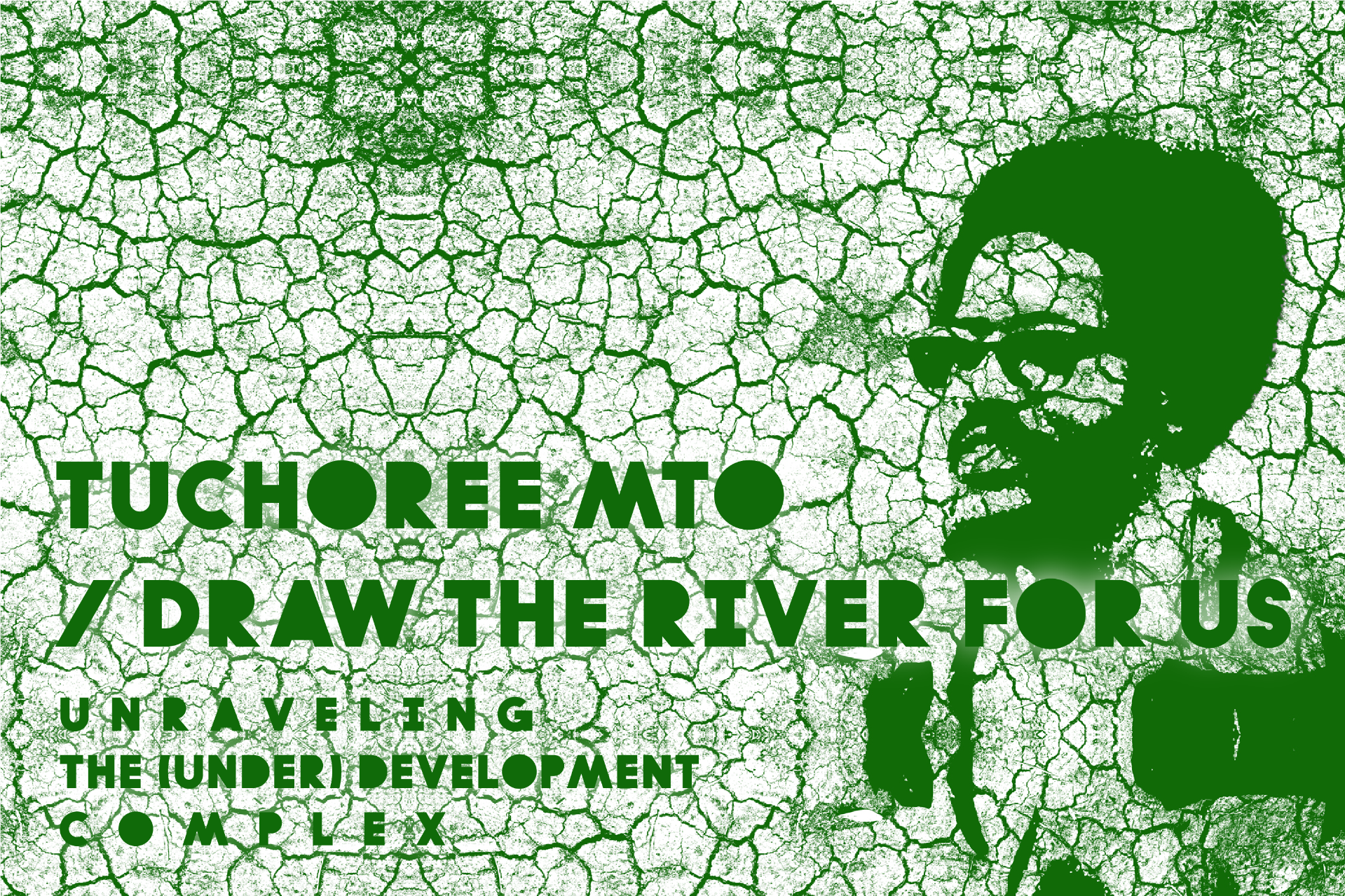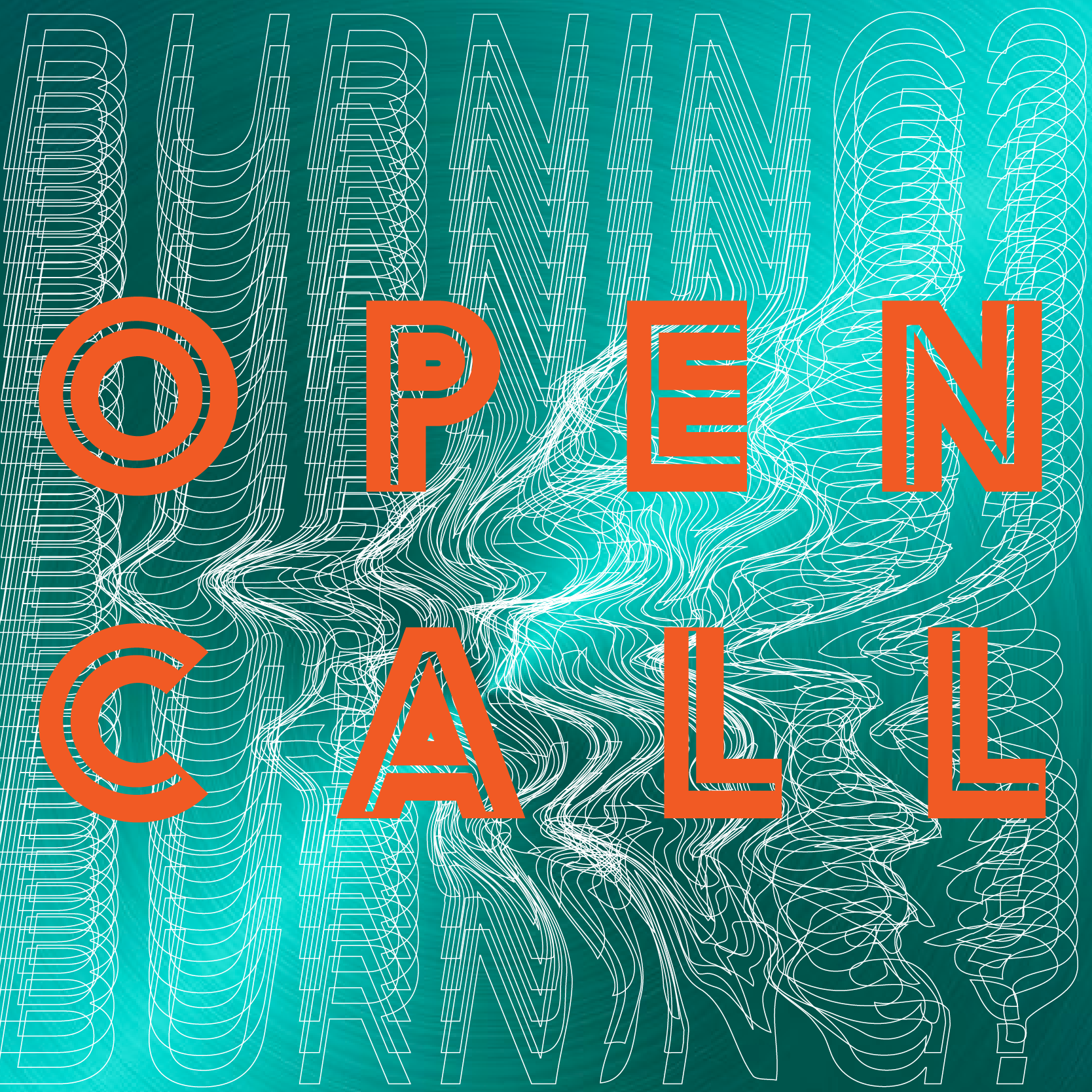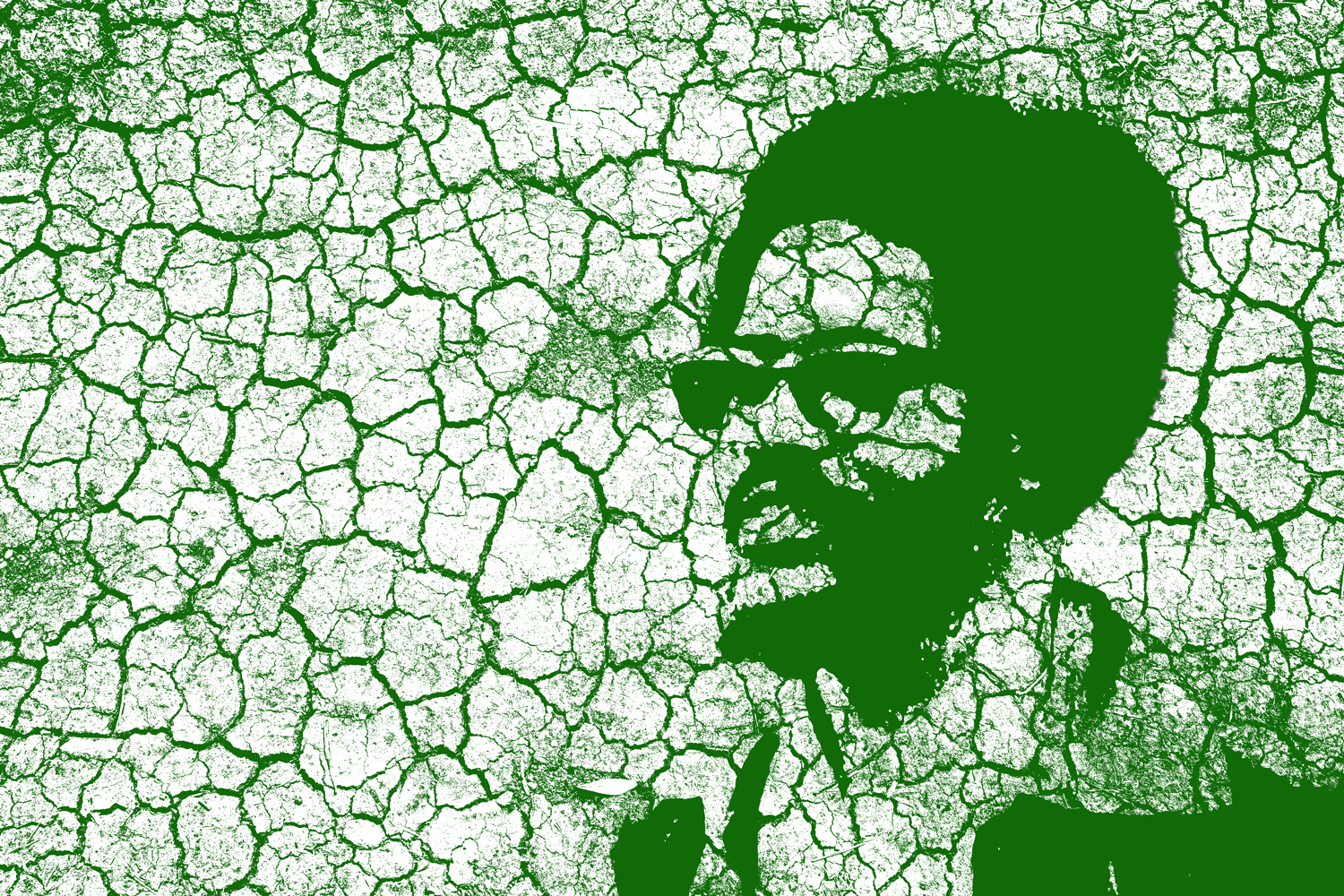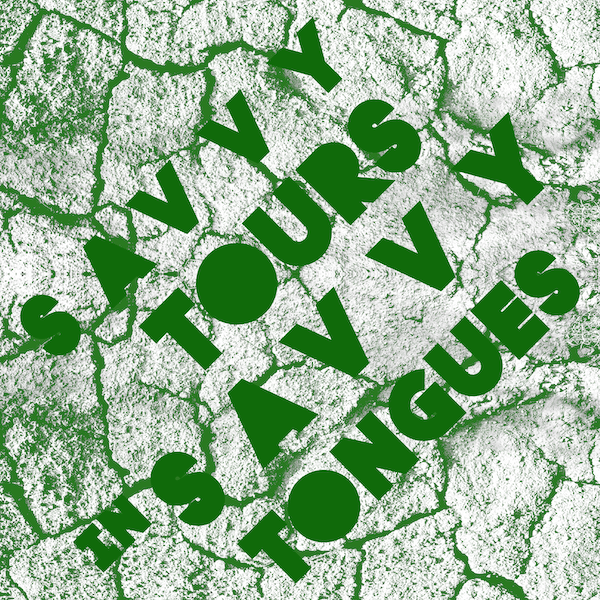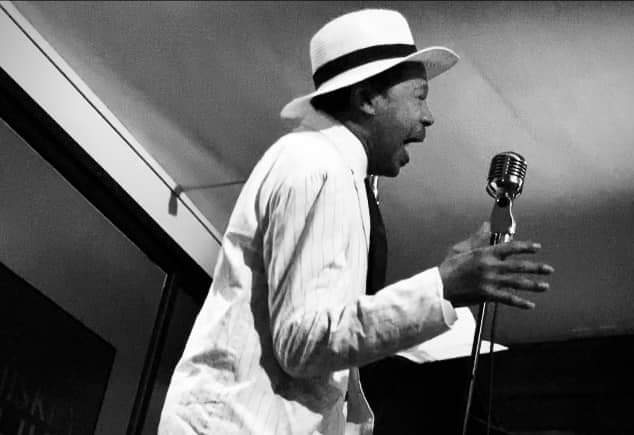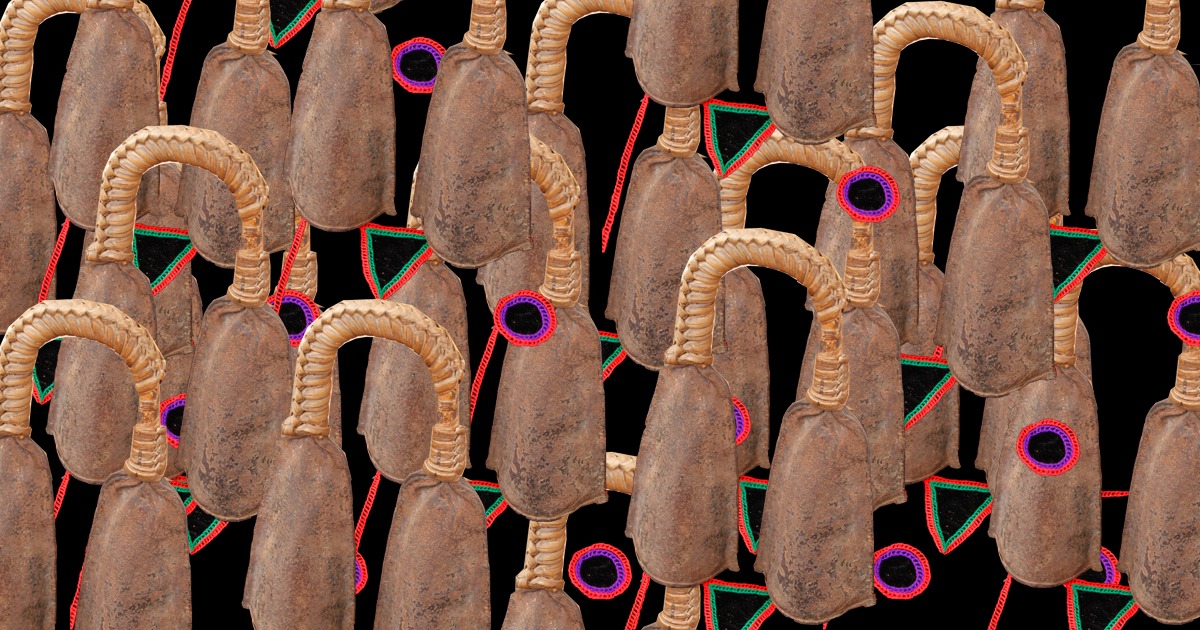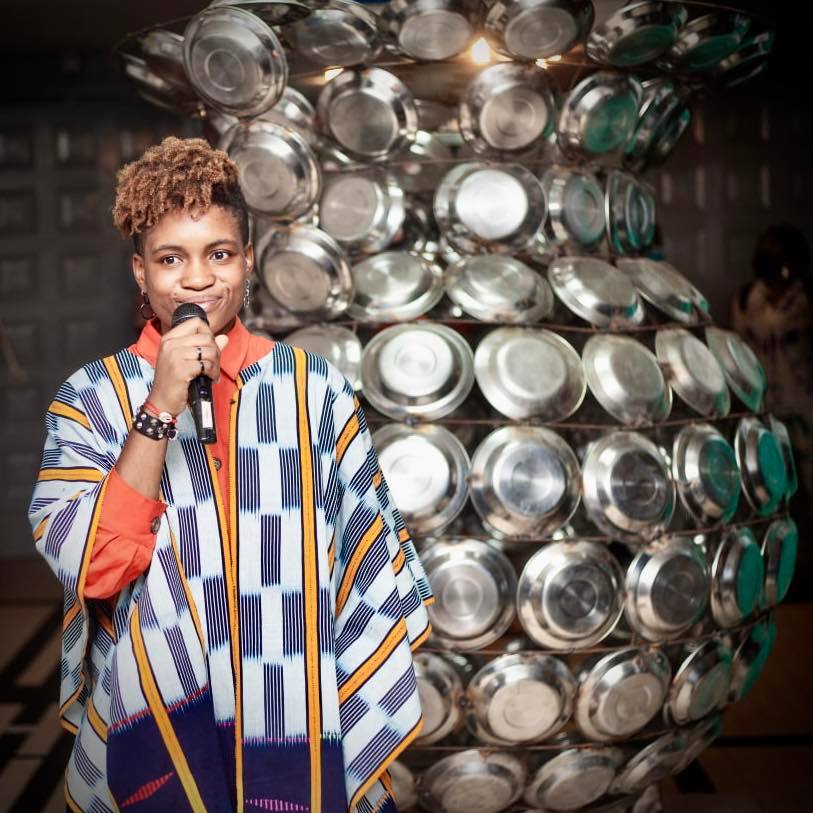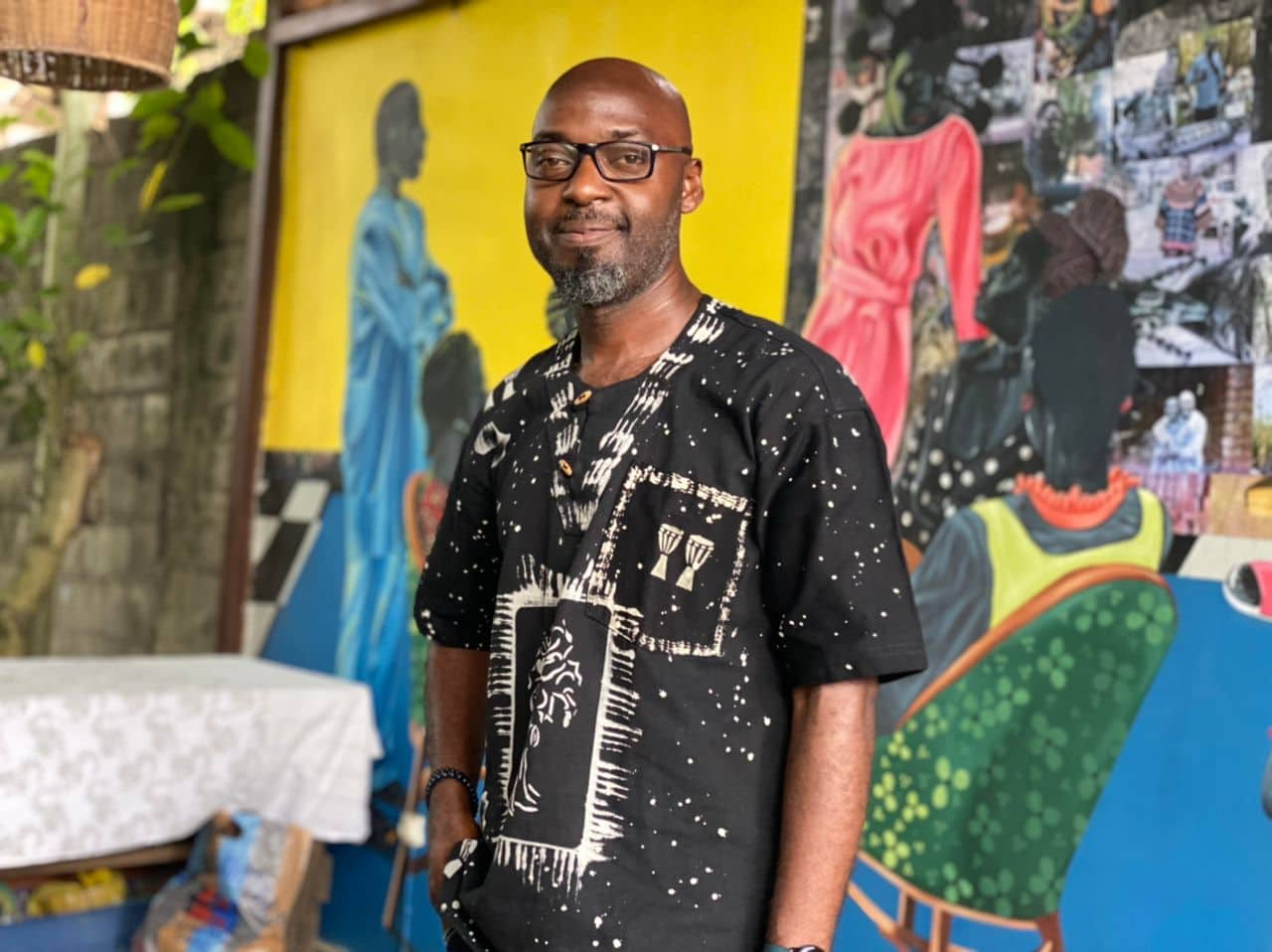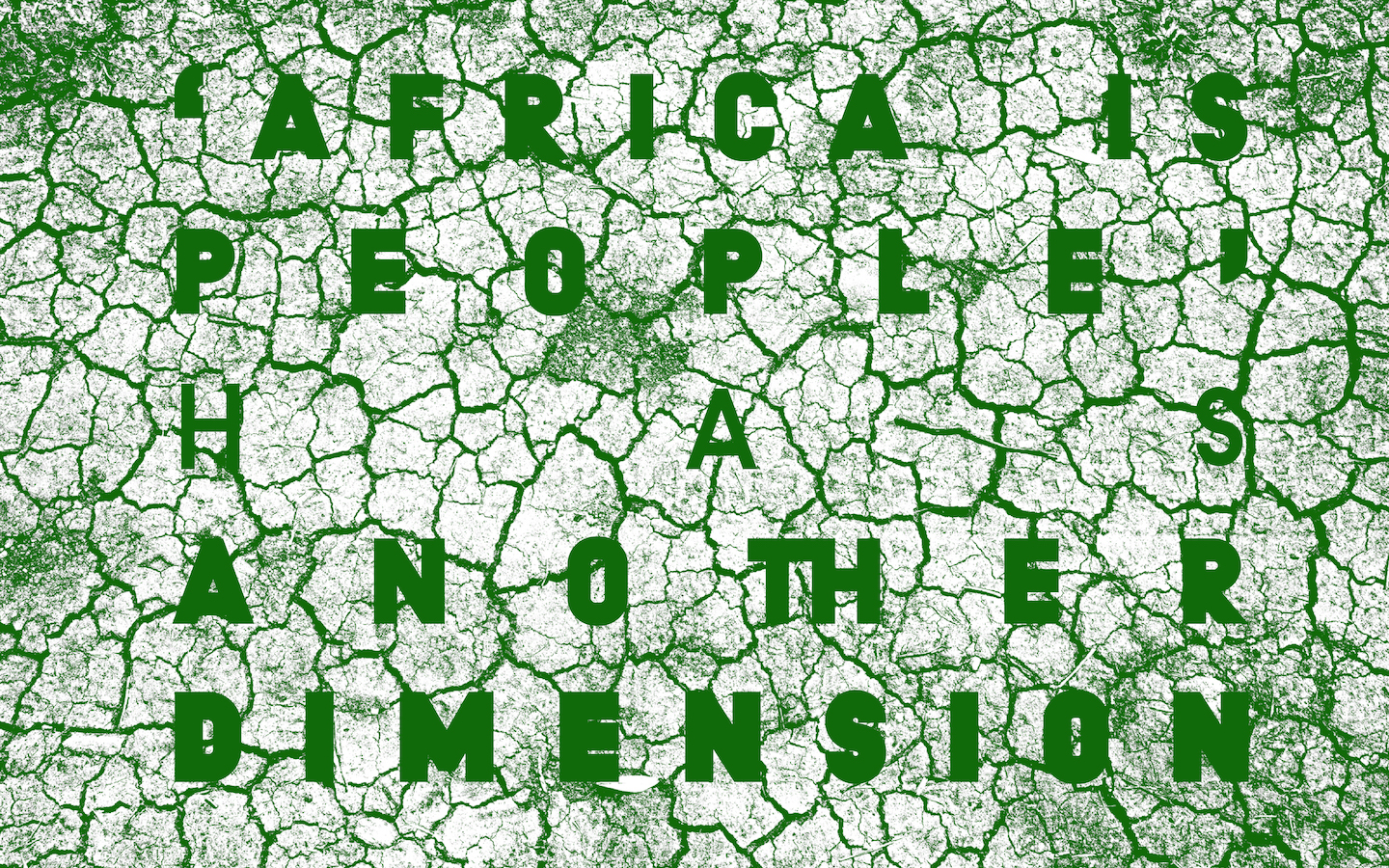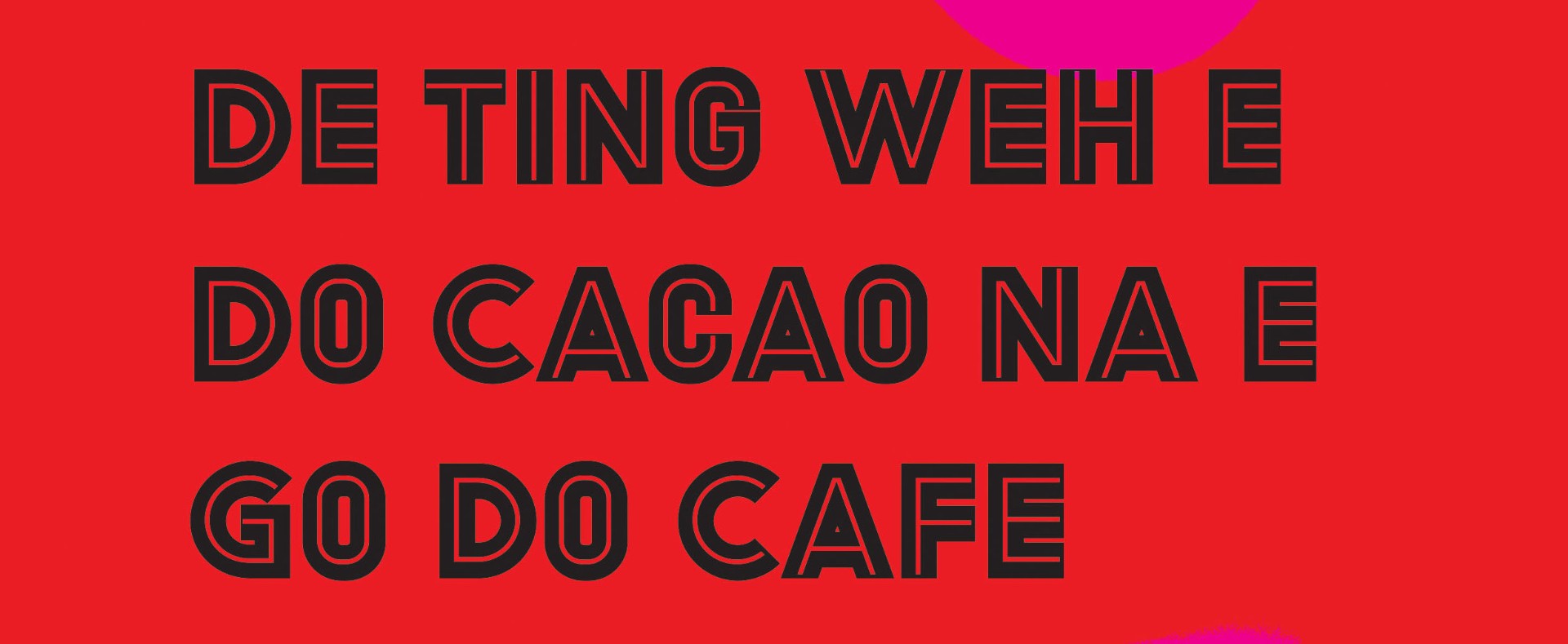UNRAVELING THE (UNDER-)
DEVELOPMENT COMPLEX
OR
TOWARDS A POST- (UNDER-)
DEVELOPMENT INTERDEPENDENCE
AN ODE TO WALTER RODNEY’S “HOW EUROPE UNDERDEVELOPED AFRICA” 50 YEARS ON
(1972–2022)
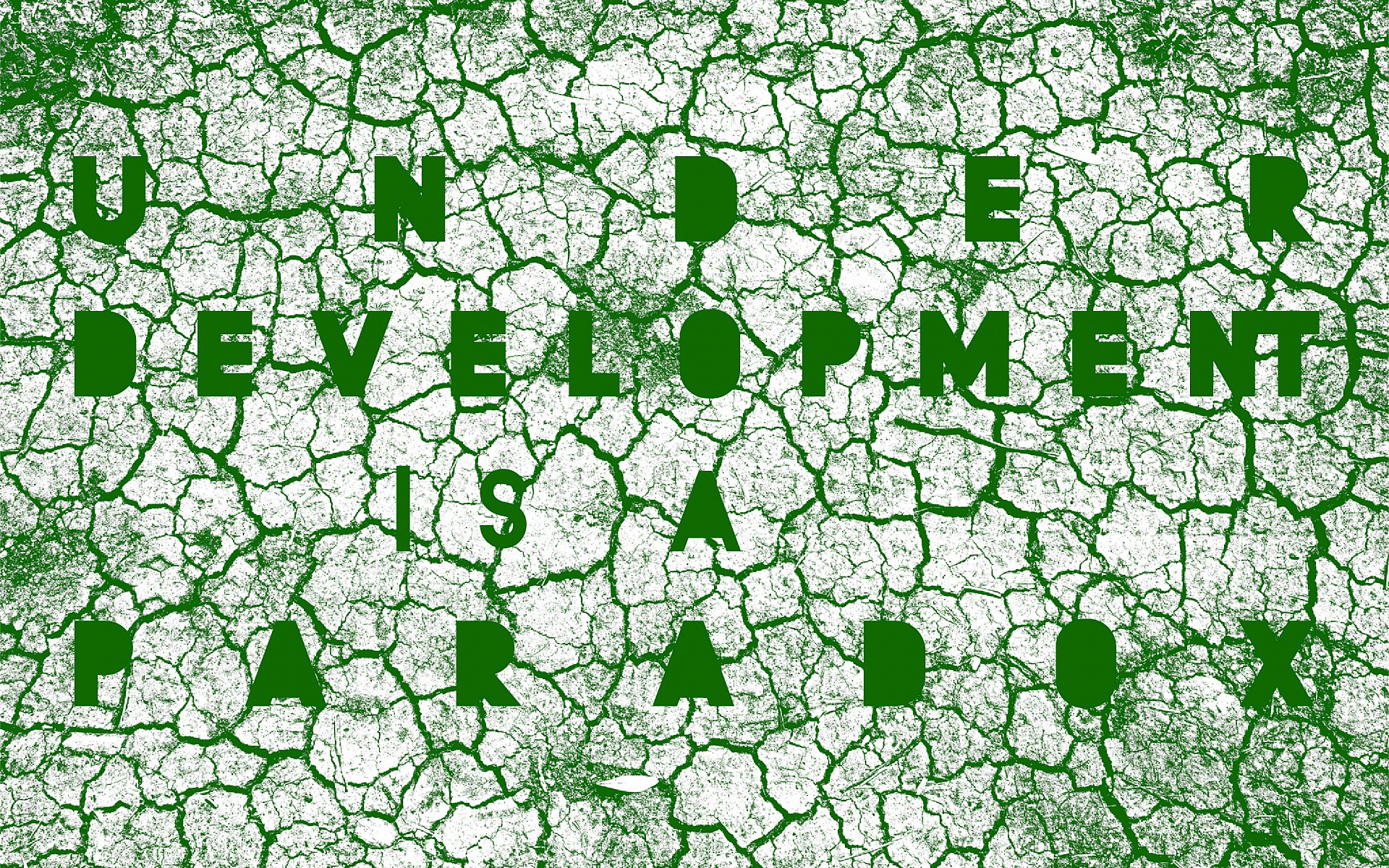
RESEARCH, EXHIBITION & PERFORMANCE PROJECT
2022–2023
Chapters / Invocations / ACTIVATIONS
March–April 2022 Bandjoun Station Bandjoun / Cameroon
September 2022 African Digital Heritage Nairobi / Kenya
TBC 2023 Goethe Institut Abidjan / Côte d'Ivoire
TBC 2023 Goethe Institut Johannesburg / South Africa
EXHIBITION
26.11.2022–27.01.2023 SAVVY Contemporary Berlin / Germany
With Jess Atieno Simnikiwe Buhlungu Sheila Chukwulozie Christopher Cozier Binta Diaw Sènami Donoumassou Sofia Gallisá Muriente & Natalia Lassalle Morillo Rajyashri Goody Karachi La Jamia Jean Katambayi Mukendi Tracy Naa Koshie Thompson Syowia Kyambi Wallen Mapondera Anna Mapoubi Emo de Medeiros Marie-Claire Messouma Manlanbien Kumari Ranjeeta Moffat Takadiwa The Victor Jara Collective Munem Wasif Guy Woueté
Invocations
28.01.–29.01.2023
WITH Dumama & Kechou, Kodwo Eshun, Jesse Gerard, Carlos Gutiérrez Quiroga, Louis Henderson, Maxwell Mutanda, Albert Parkes, Nisha Ramayya, Patricia Rodney and Asha Rodney (Walter Rodney Foundation), S. Akbar Zaidi, Aram Ziai, and more.
FREE ENTRANCE Donations welcome
ACCESS Our space is accessible by wheelchair
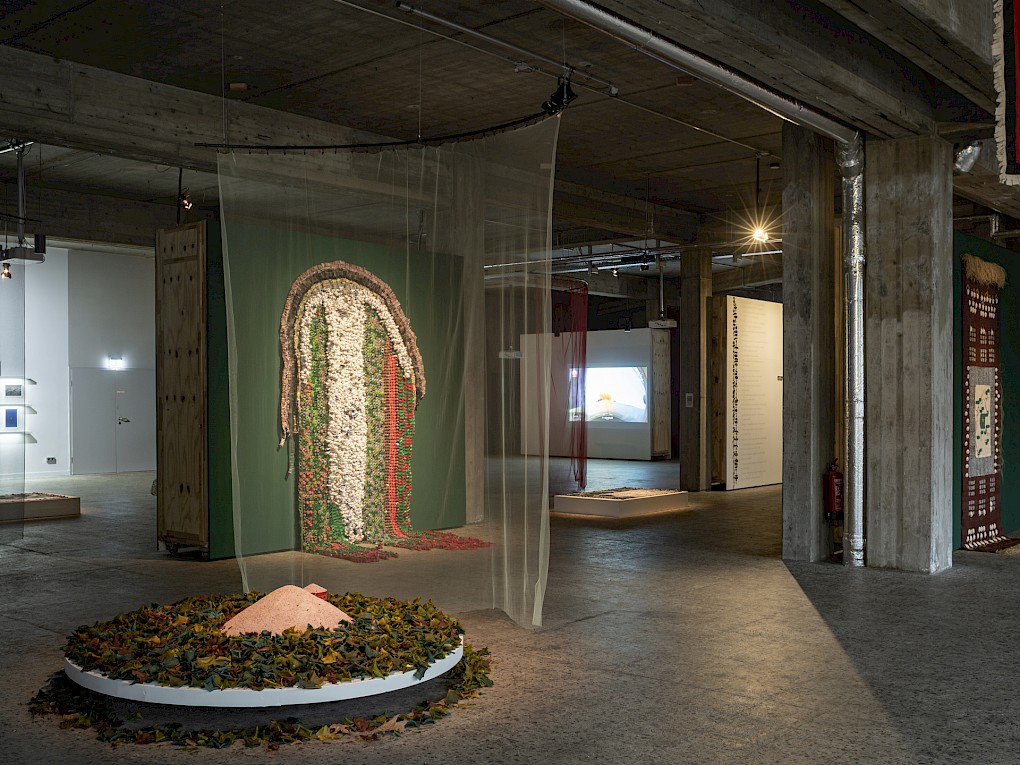
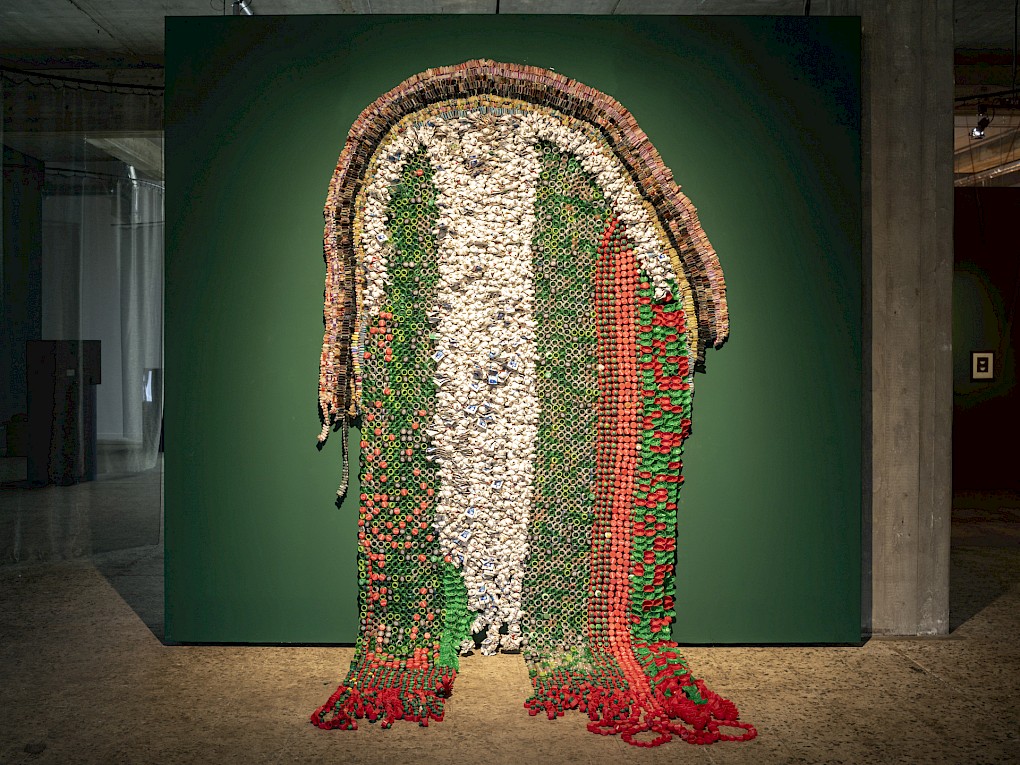
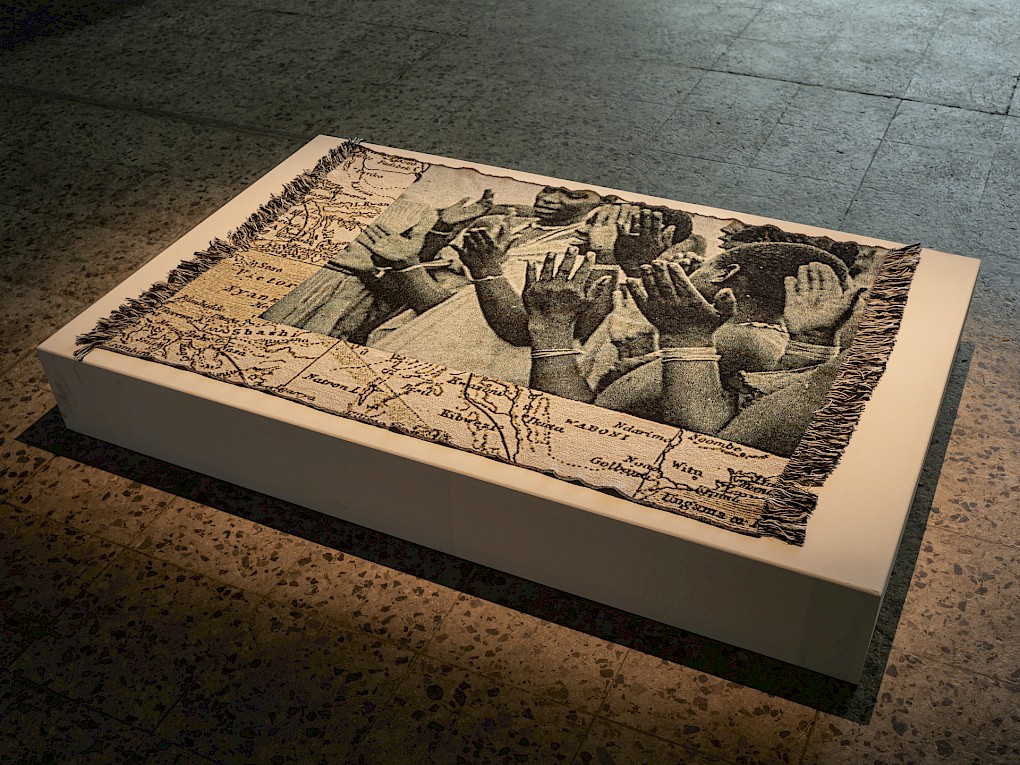
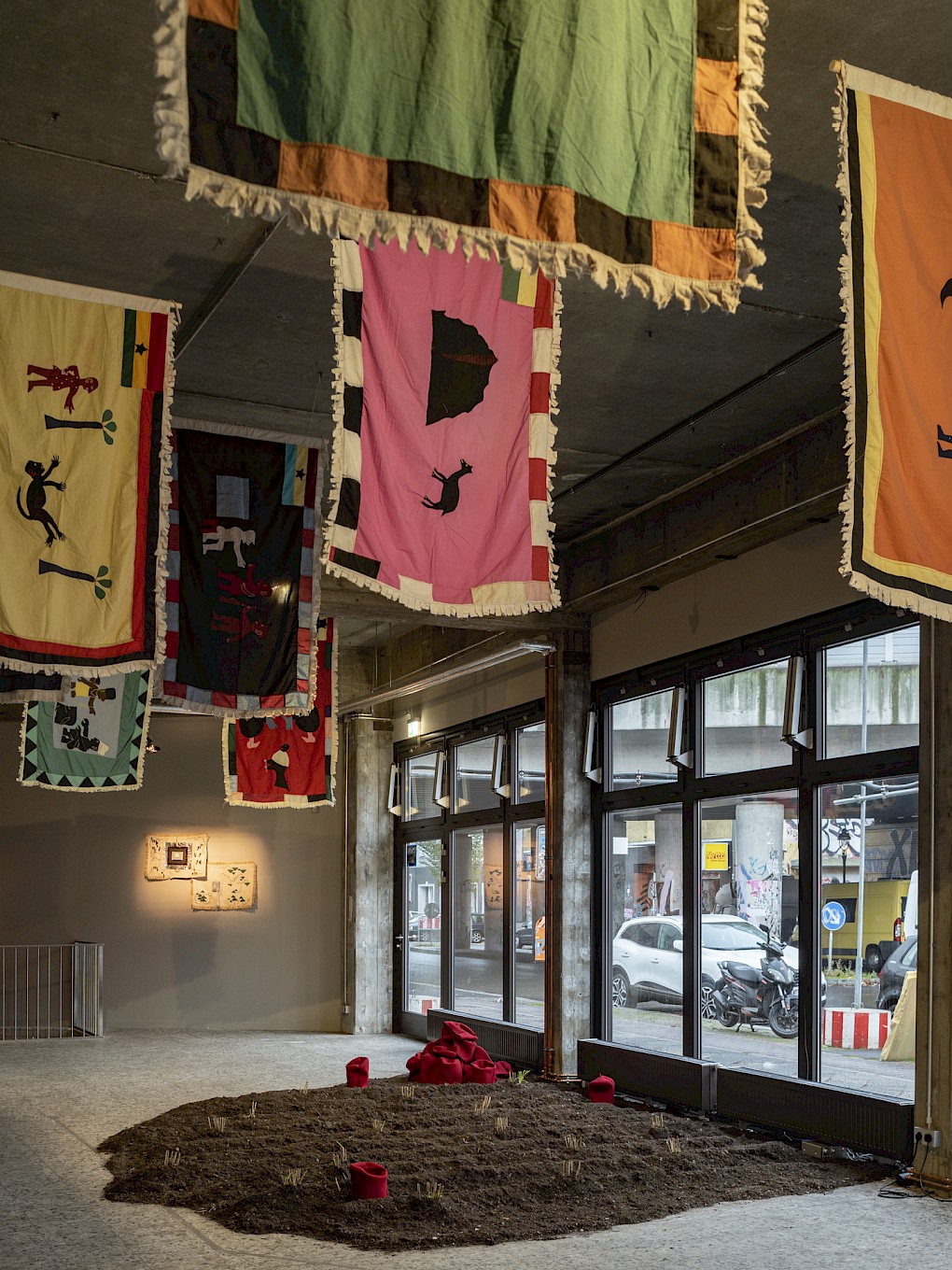
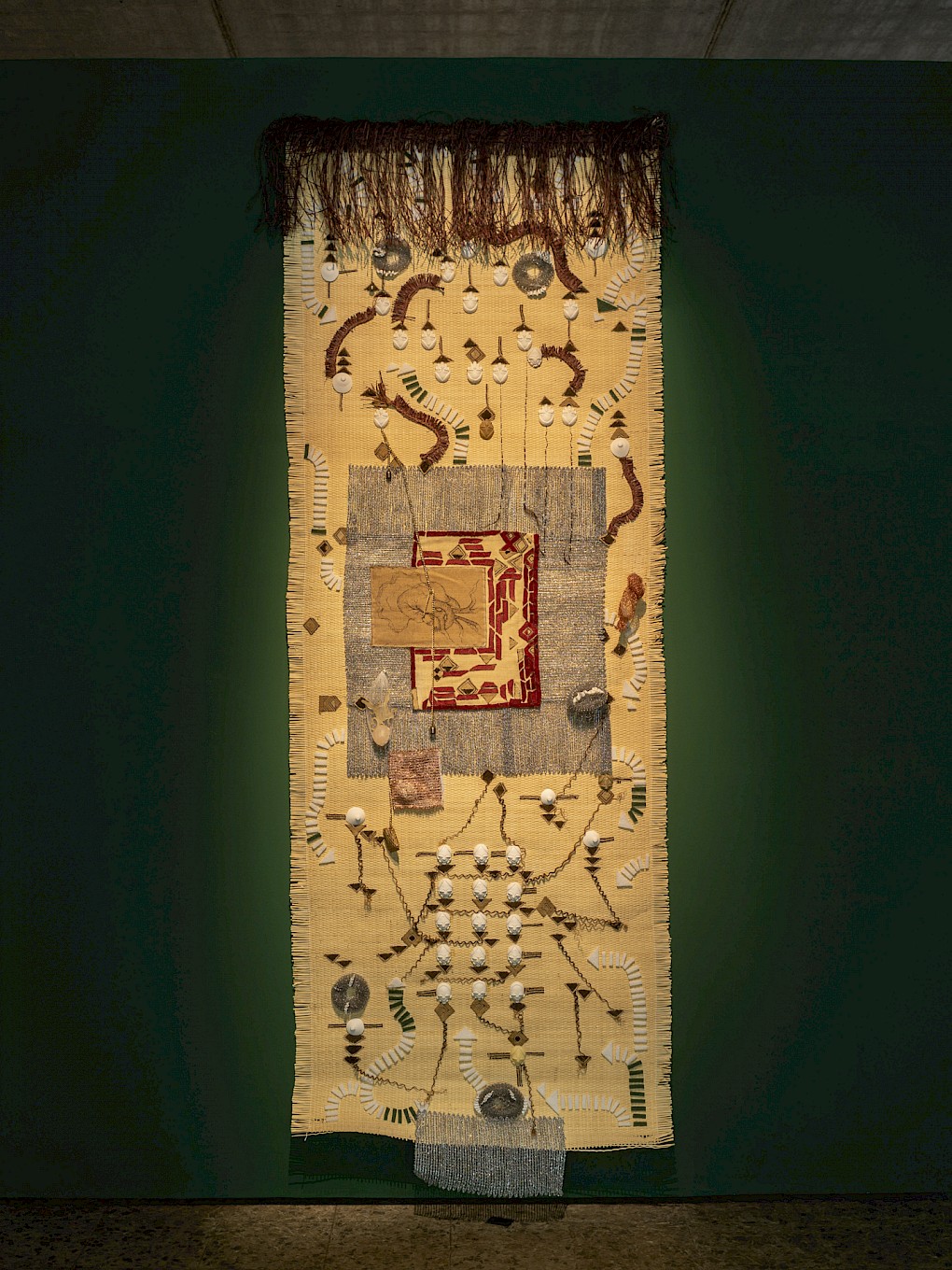
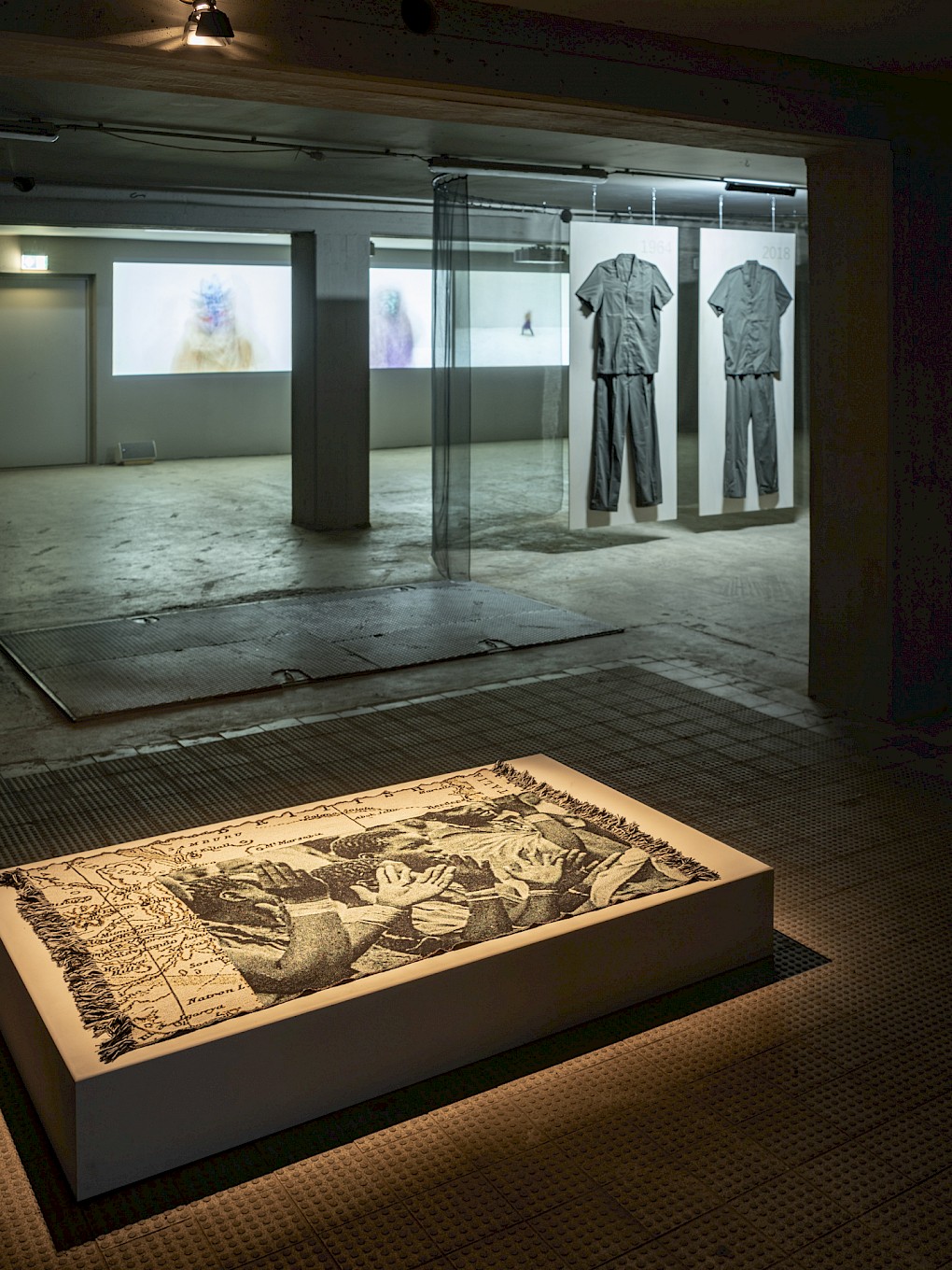
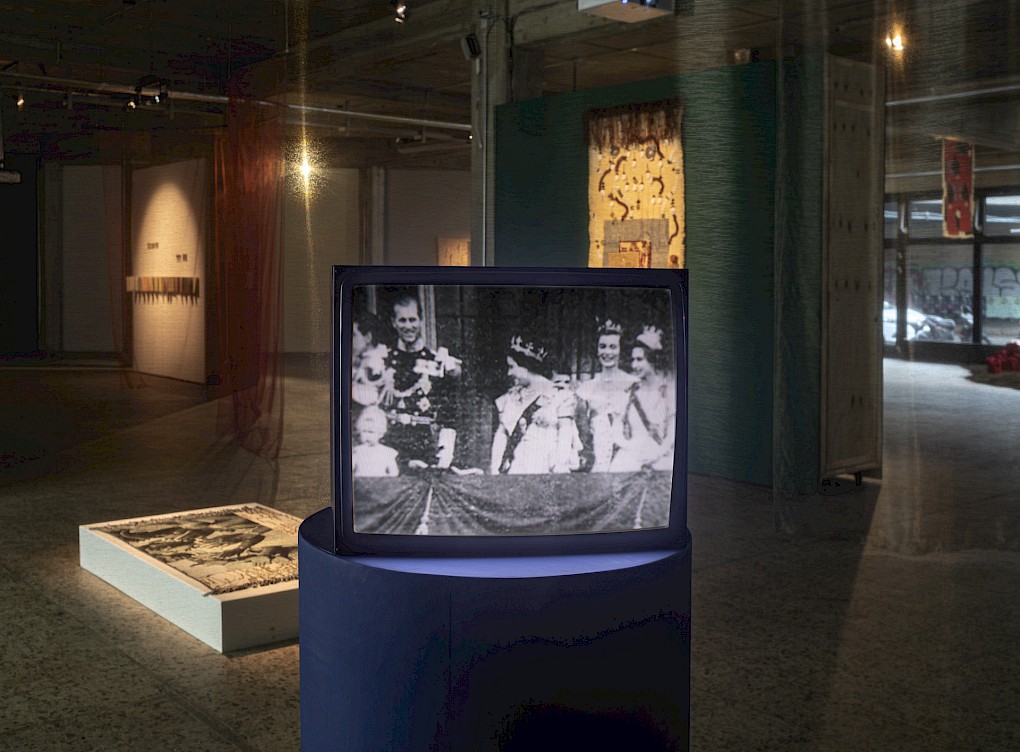
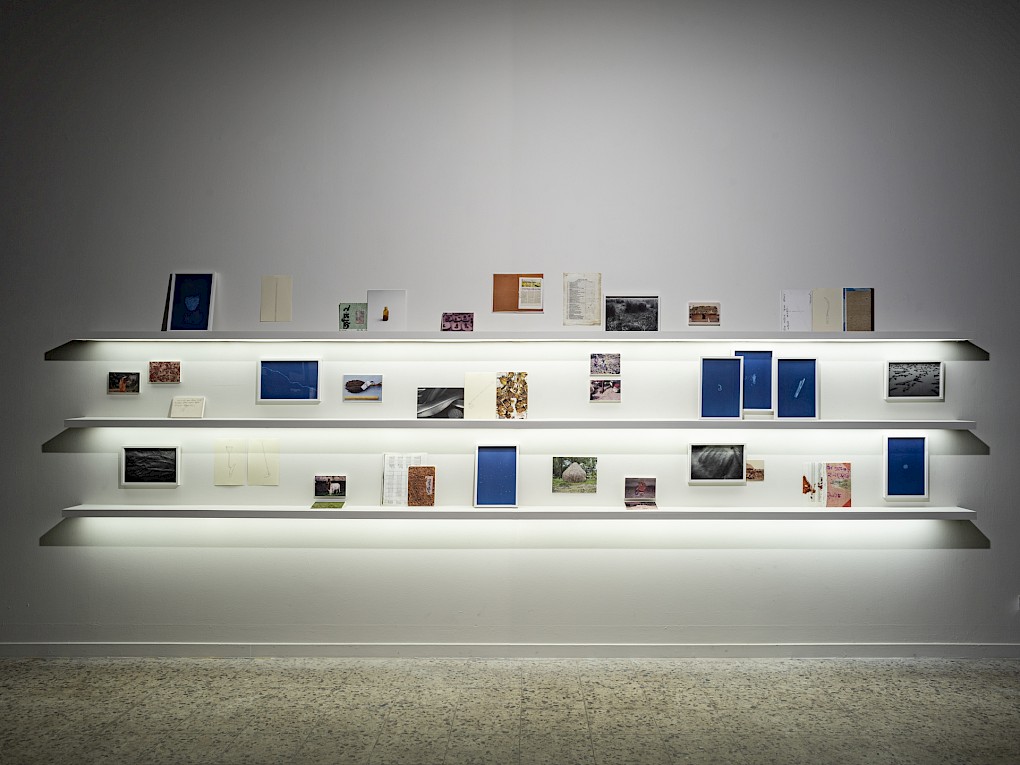
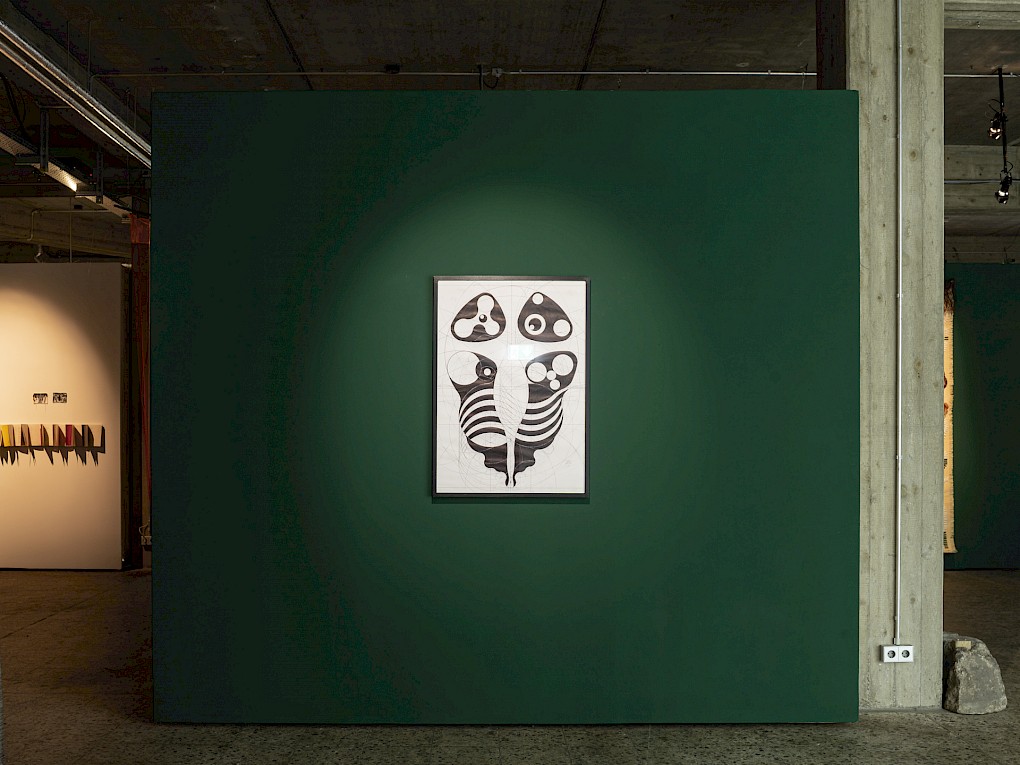
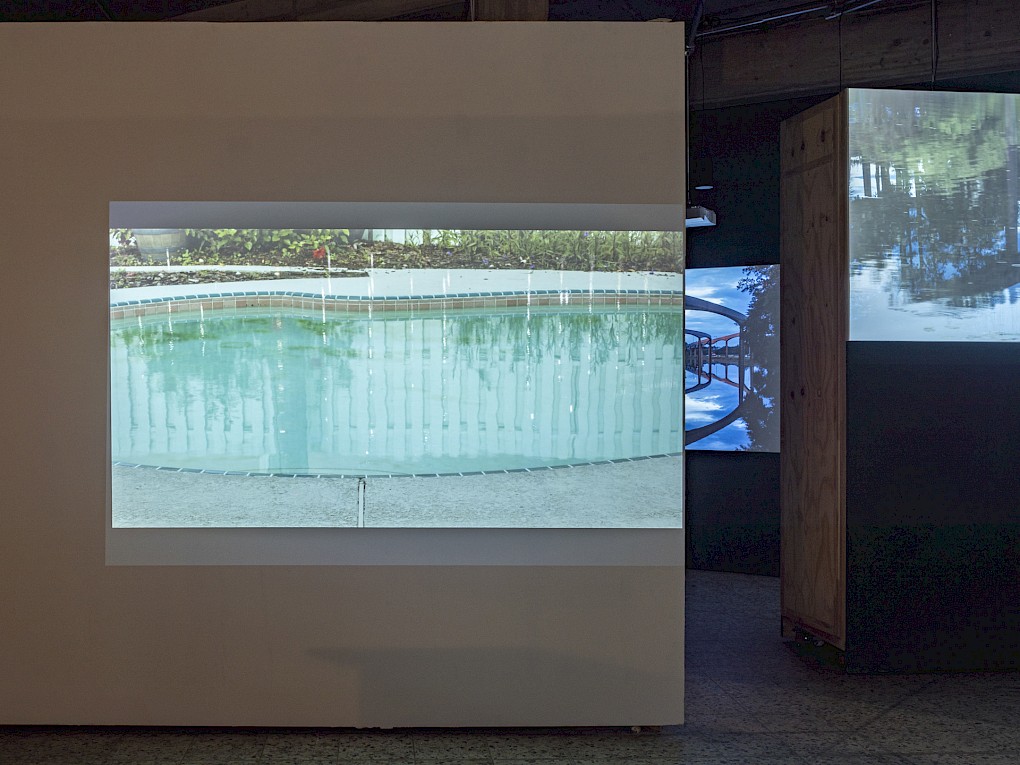
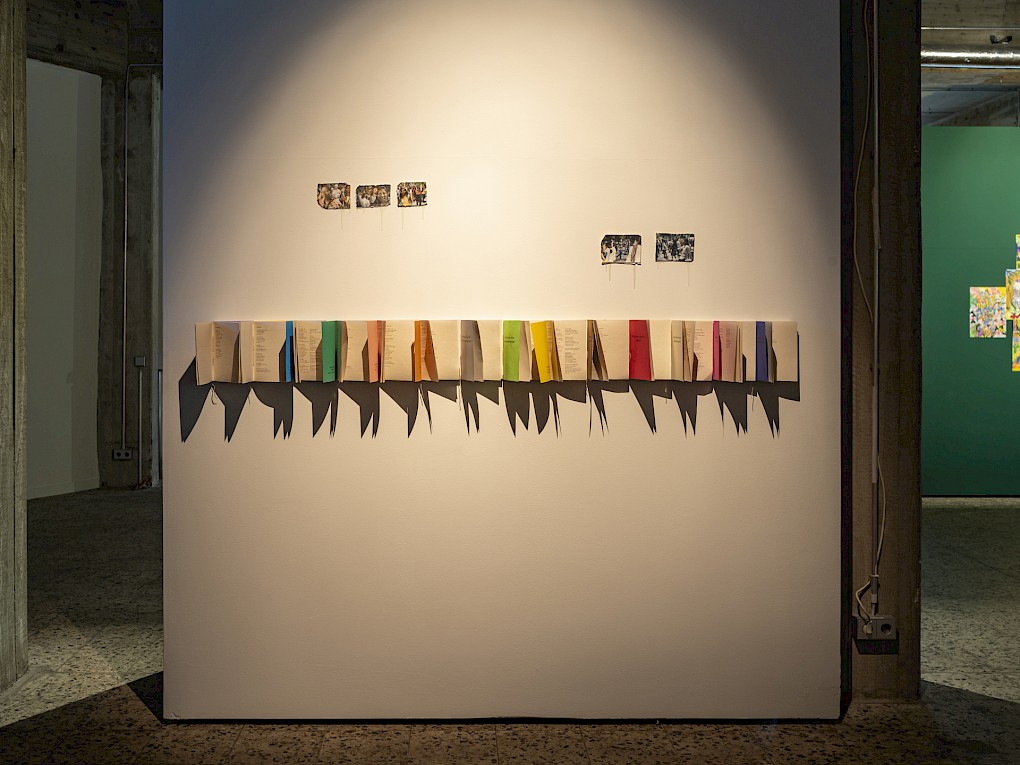
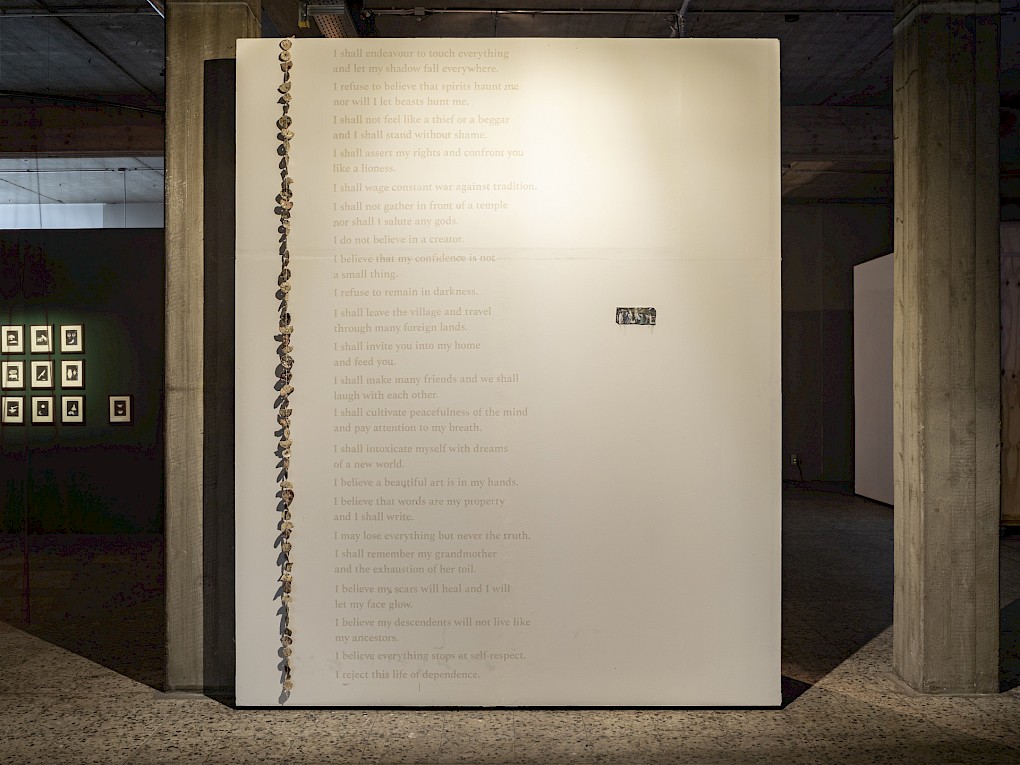
Development in human society is a many-sided process. At the level of the individual, it implies increased skill and capacity, greater freedom, creativity, self-discipline, responsibility and material well-being. Some of these are virtually moral categories and are difficult to evaluate – depending as they do on the age in which one lives, one’s class origins, and one’s personal code of what is right and what is wrong. (…) The relations which develop within any given social group are crucial to an understanding of the society as a whole: Freedom, responsibility, skill, etc. have real meaning only in terms of the relations of men in society.
This project takes its cue from and celebrates Walter Rodney’s How Europe Underdeveloped Africa fifty years after its publication, while asking the question: How can we imagine a Post-(Under)Development World?
Walter Rodney’s well researched and trenchant historical, sociological, and socio-economic account was published in 1972 which makes this year, 2022, its 50 anniversary. The seminal book takes us through the institutionalisation of colonialism, the partitioning of peoples, the imposition of languages and destruction of knowledges and cultures, and how they had repercussions in the moment of 1971/72, and continue to have in the present, 50 years later. It offers the reader a historical exposé of the African continent before the Middle Passage, before the violent and inhumane machinations of the transatlantic slave enterprise while also taking us through the era of decolonial movements.
This project is a daring effort to analyze the status quo and imagine a world that doesn’t exist in the binary of “development” and “underdevelopment”. It manifests itself in multiple locales (Bandjoun, Nairobi, Berlin, Abidjan, and Johannesburg) as a series of research, exhibitions, performances, lectures, conversations and workshops around the myths of “development” and “underdevelopment” as well as imagining and crafting a Post-(Under)Development world.
We aim at gathering a network of activists, sonic agitators, scholars, artists and designers, political economists and practitioners to share knowledge across languages as well as sonority to imagine and shape together a post developmental age. A pluriverse of interdependent imaginations, visions and strategies, away from capitalist and industrial productivity and toward transformative conviviality.
To envision a world that doesn’t exist in the binary of “development” and “underdevelopment”, does not only require a theoretical thinking and framing but also the performativity of various notions of that thing some call progress. As a guerilla theorist, Rodney’s thinking interweaves academic spheres and ground realities. We are referring to artistic practices that make the paradoxes visible which are embedded in the constructs of “development” and “underdevelopment”. These practices are not limited to highlighting the contradictions, they are also generative spaces that propose options and possibilities. Some practices examine the notion of waste and the dependent cycles of trade, others examine systemic politics of exclusion and division. They provide transtemporal dialogues between the dynamics these systems are rooted in and the ruptures provoked by them. In this project we are interested in looking at what emerges from these ruptures and what can grow from the cracks.
The post in Post-(Under)Development is not meant as a negation of development, but a breaking free from an ideology of development that is framed around a gradient of colonial power and ingrained in colonial capitalist structures of dependency. Post-(Under)Development is the negation of the subordination and denigration that is connoted in and with “under”, it is the emancipation from the imperialist logic of extortion and profit of one at the detriment of the other. It is an imaginary that embraces inter- and intra-dependencies as modes of being together in a world in which our well-being, our breath is contingent on the well-being and breath of the other, and the plethora of knowledges, arts, sciences, technologies, philosophies that facilitate our situated being in the world with and in relation to others. With this project we aim at shaping a pluriverse of interdependent imaginations, visions, and strategies, away from capitalist and industrial productivity and toward transformative conviviality.
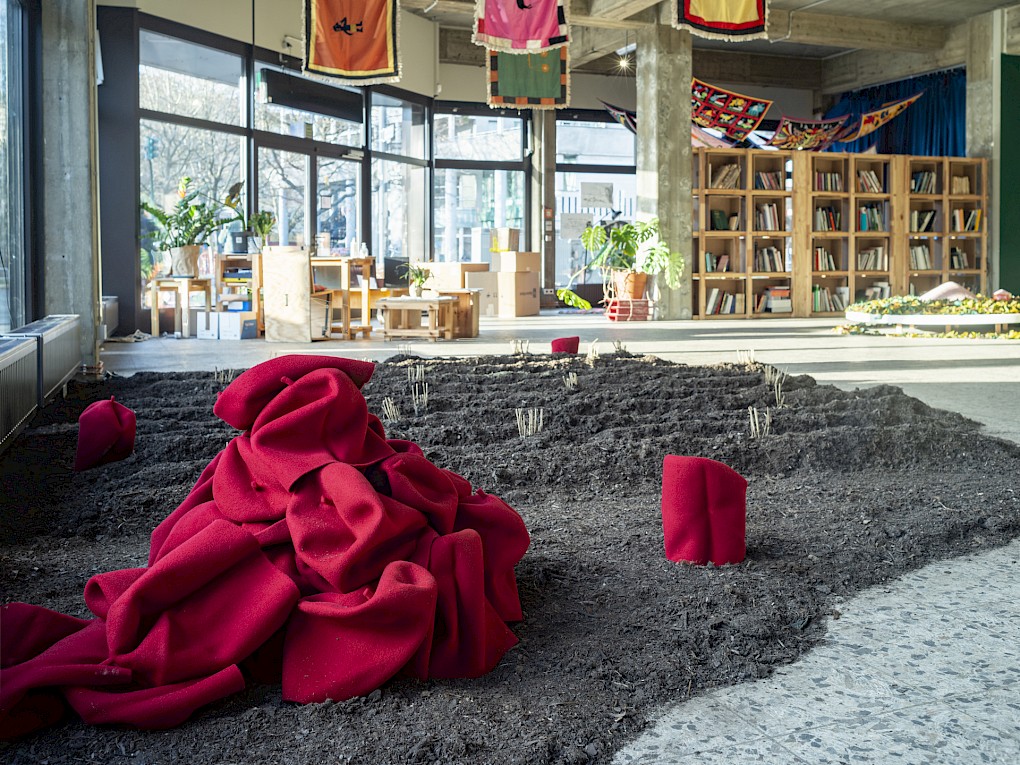
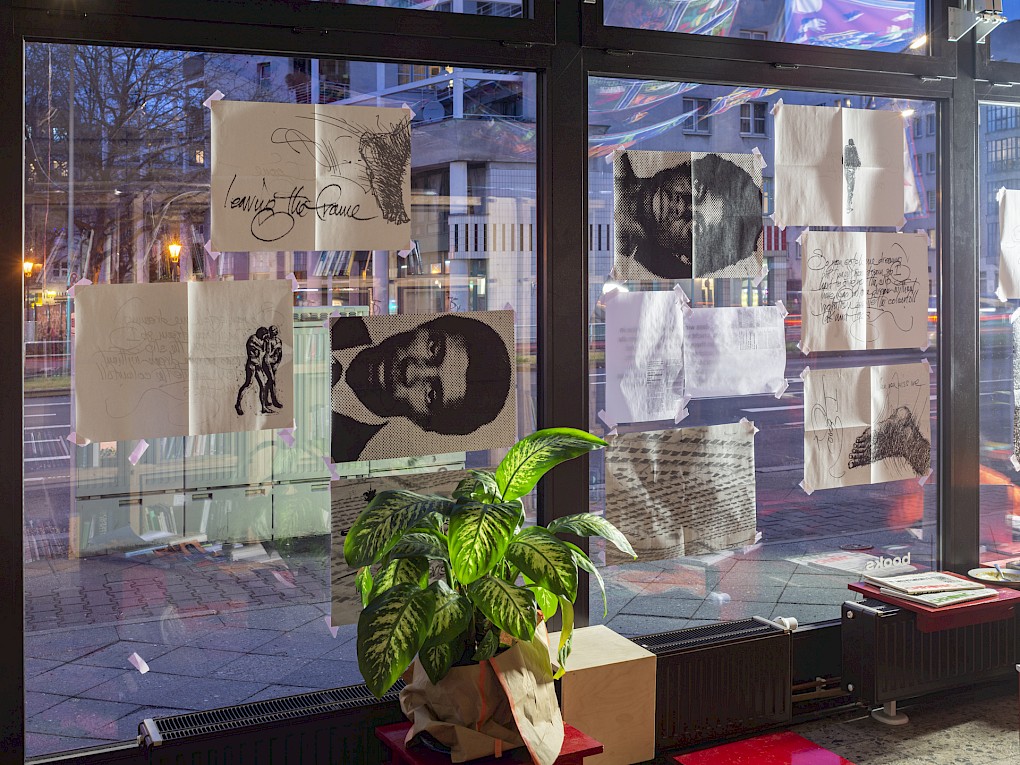
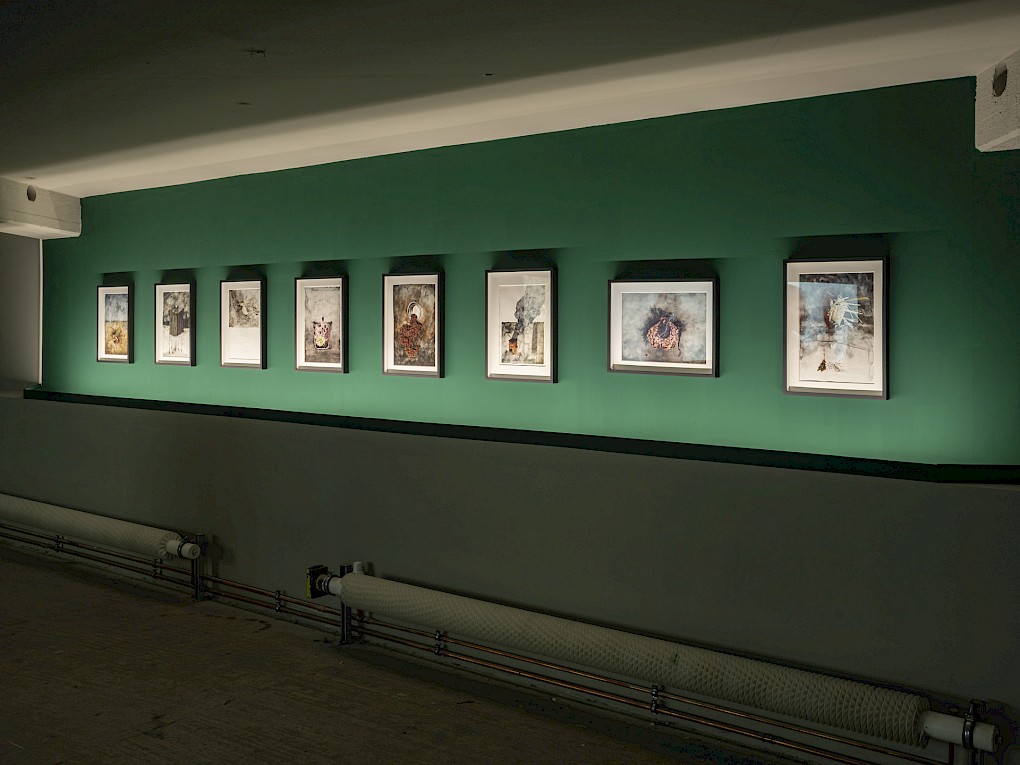
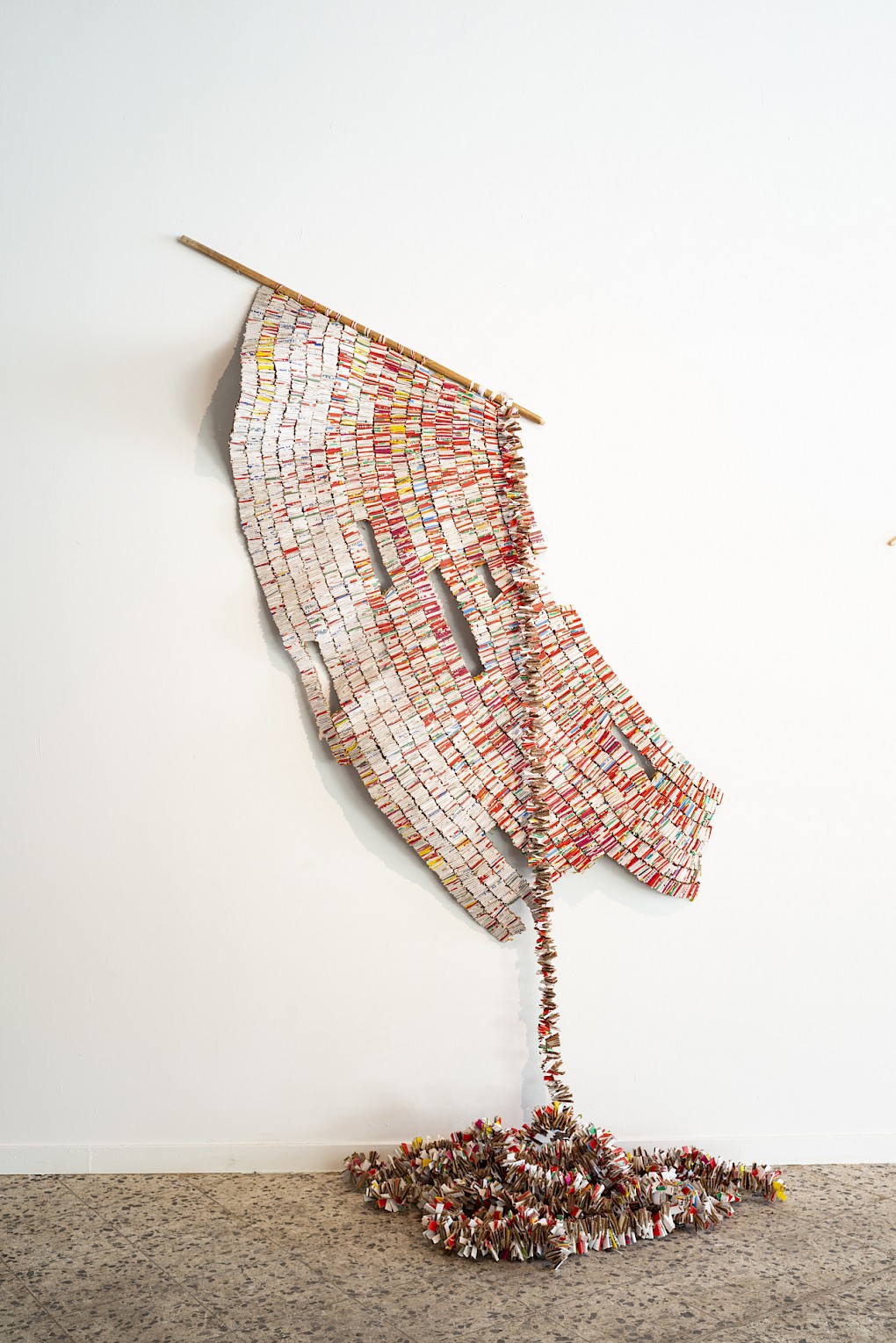
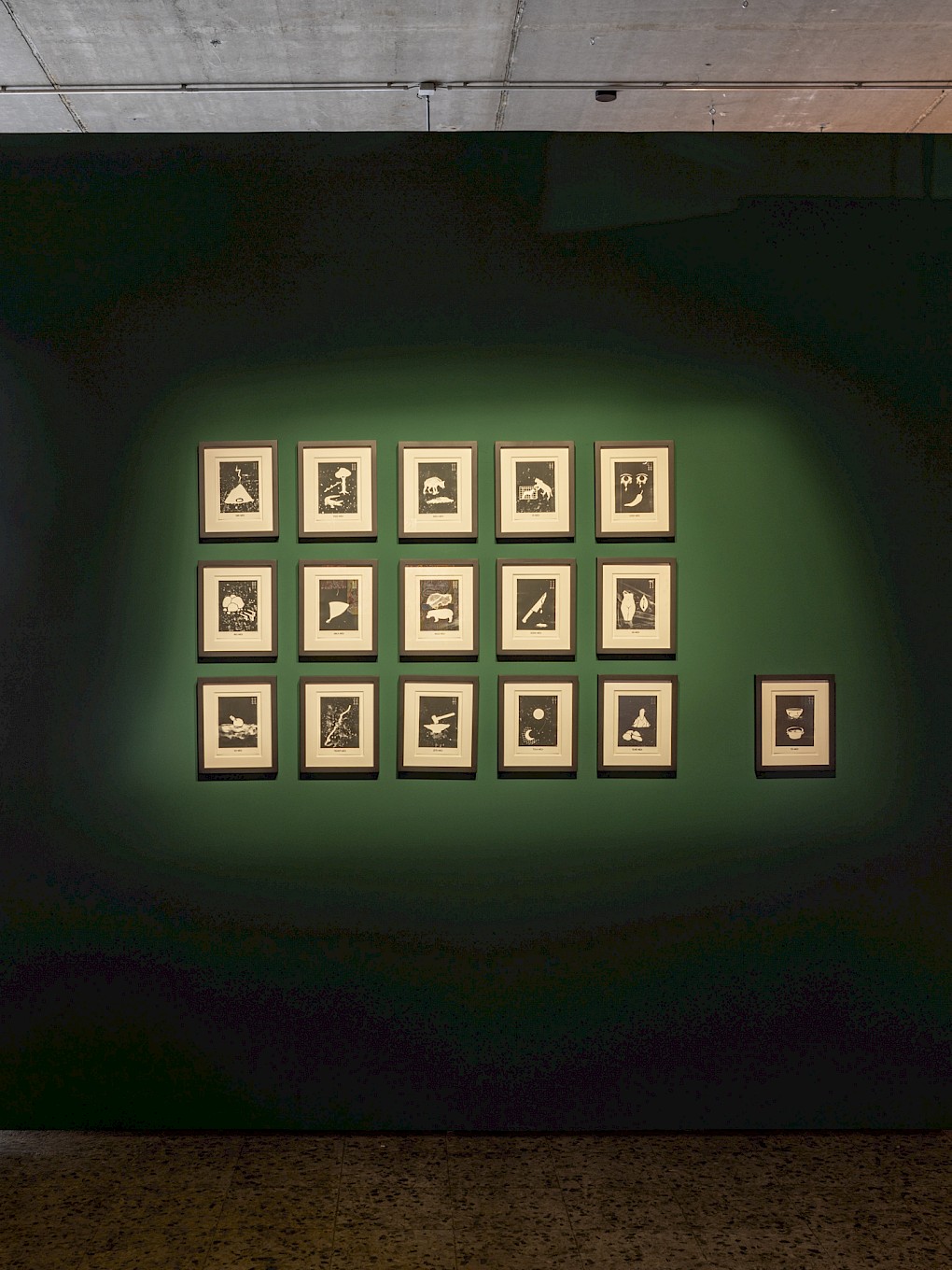
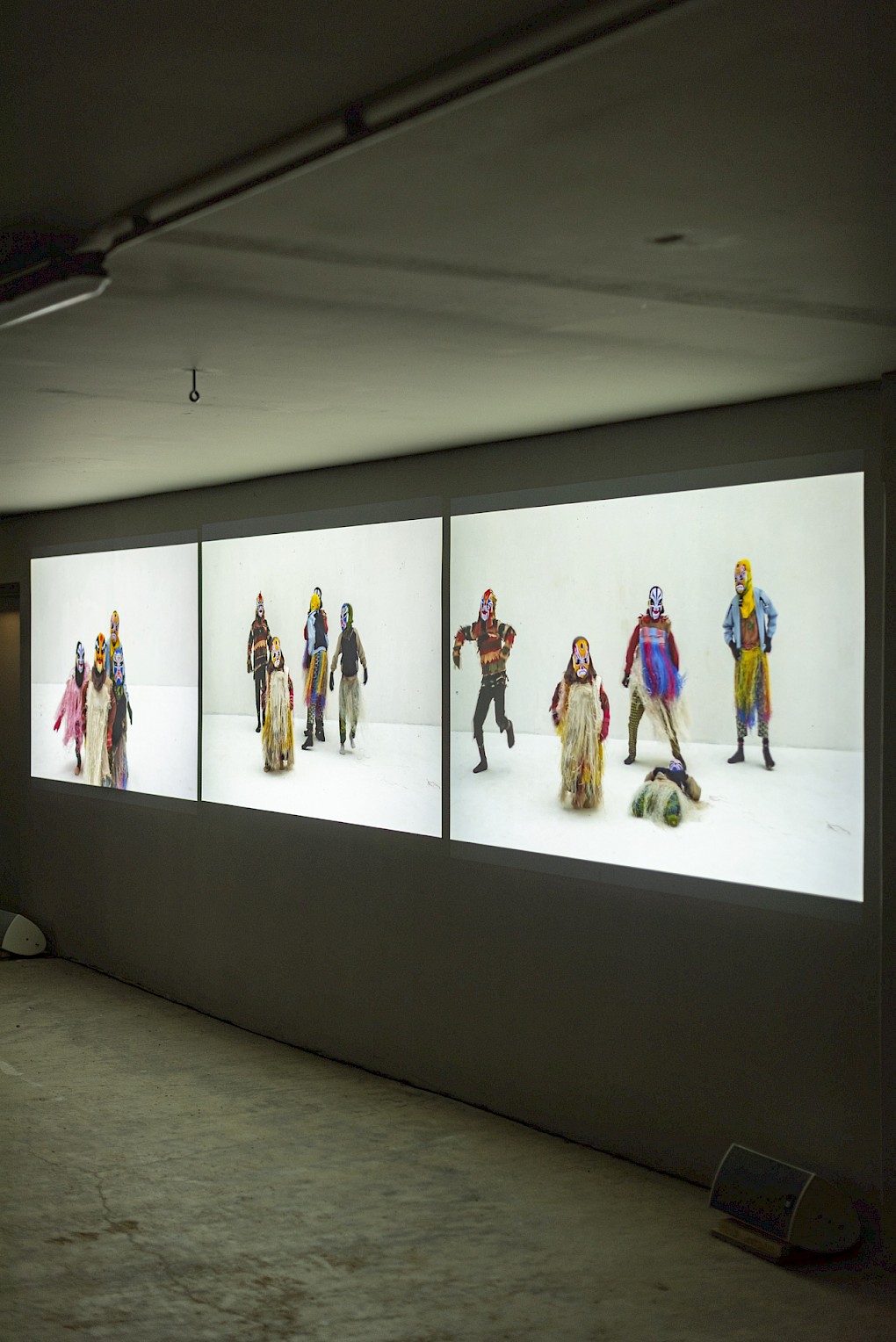
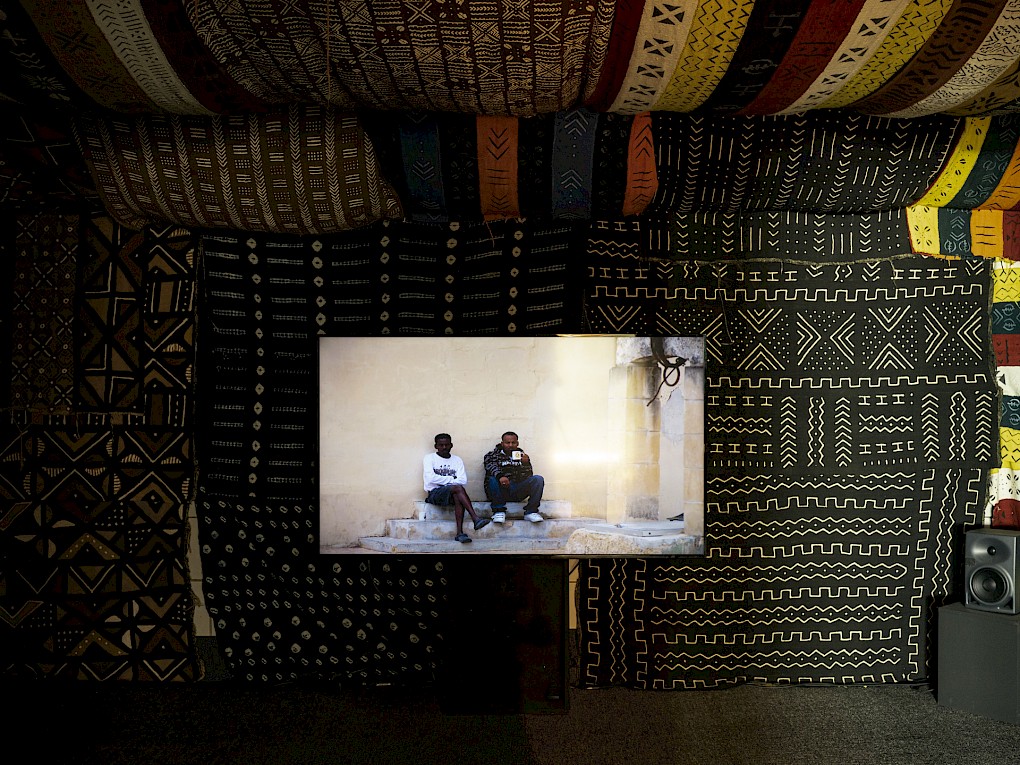
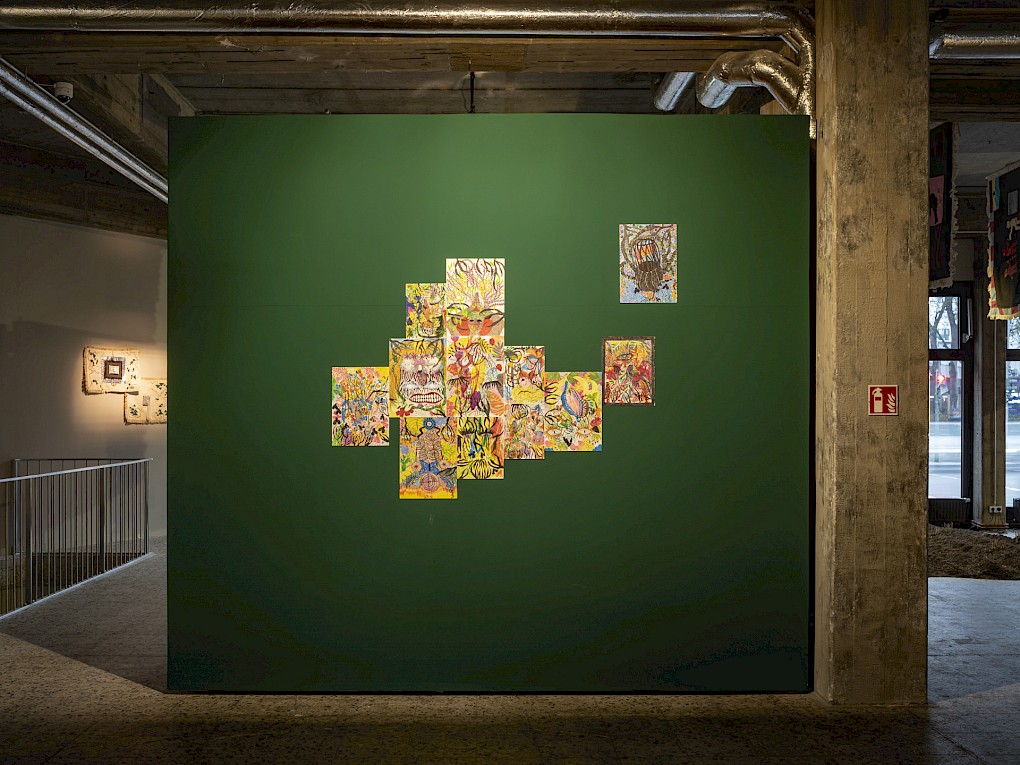
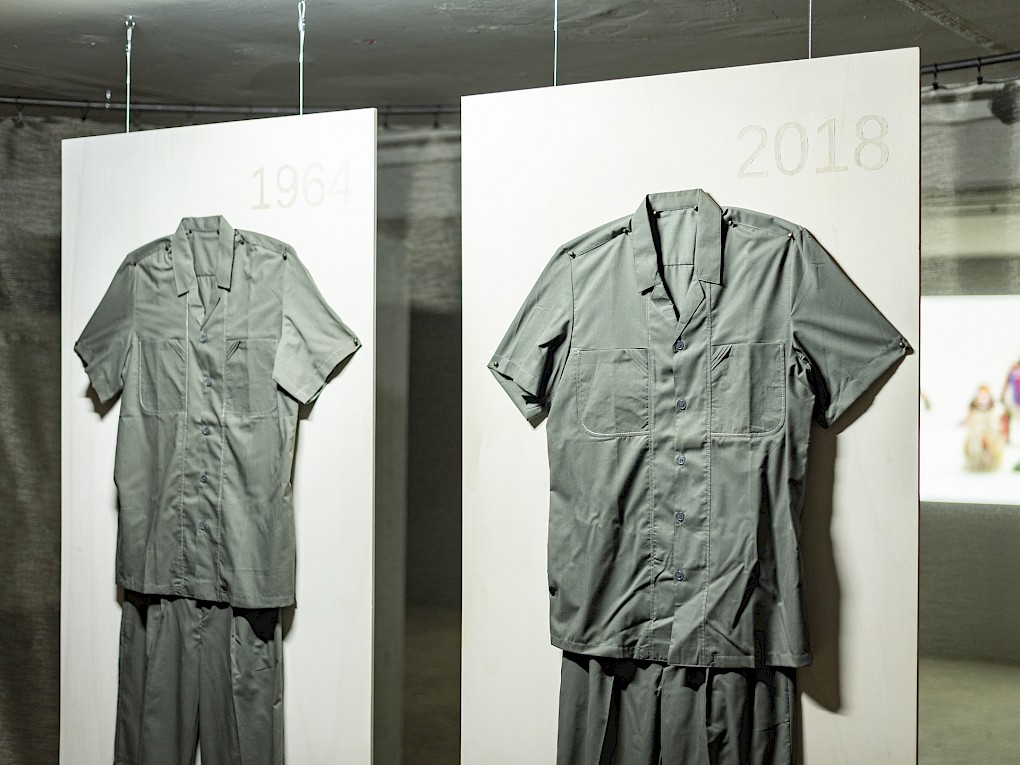
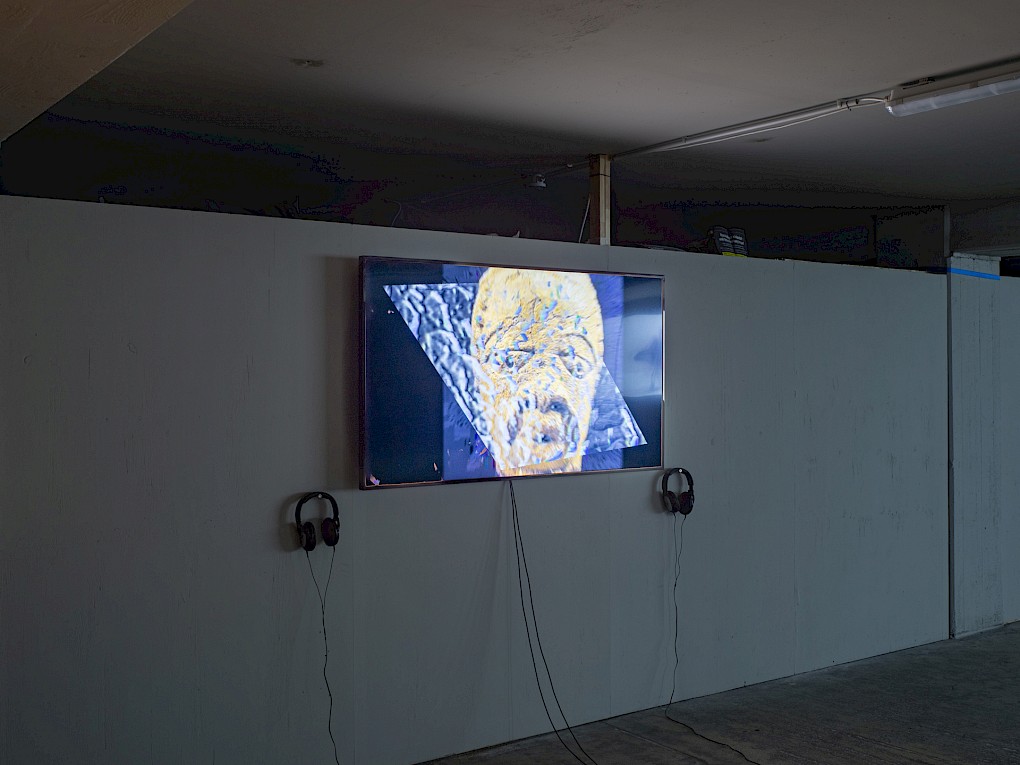
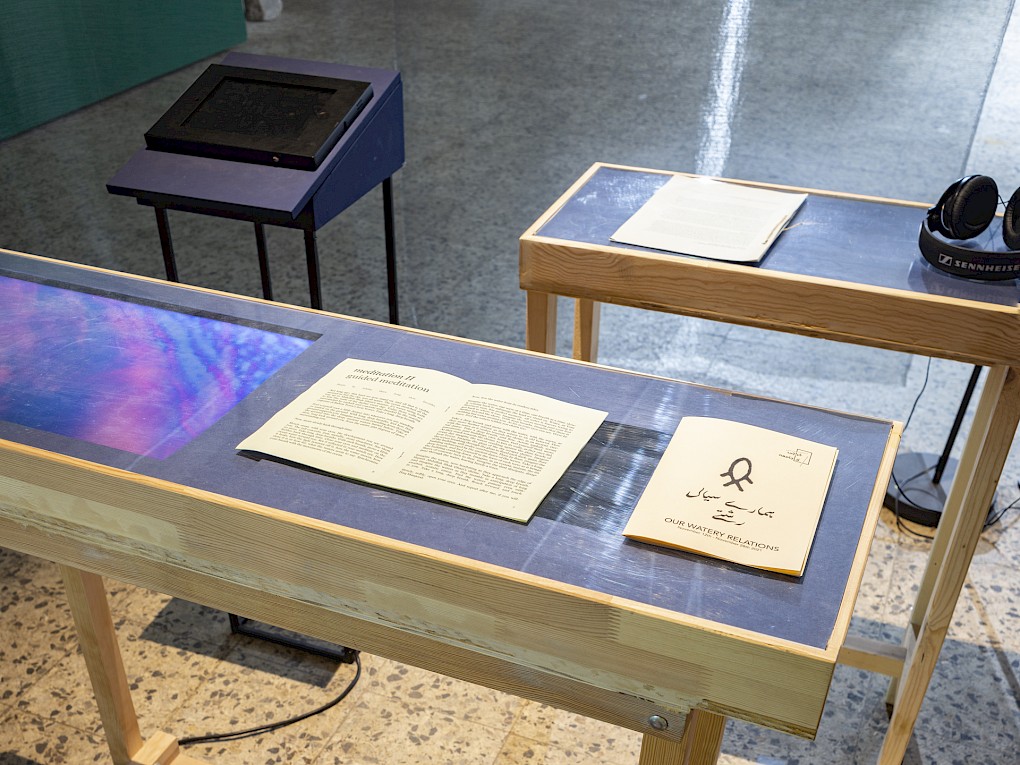
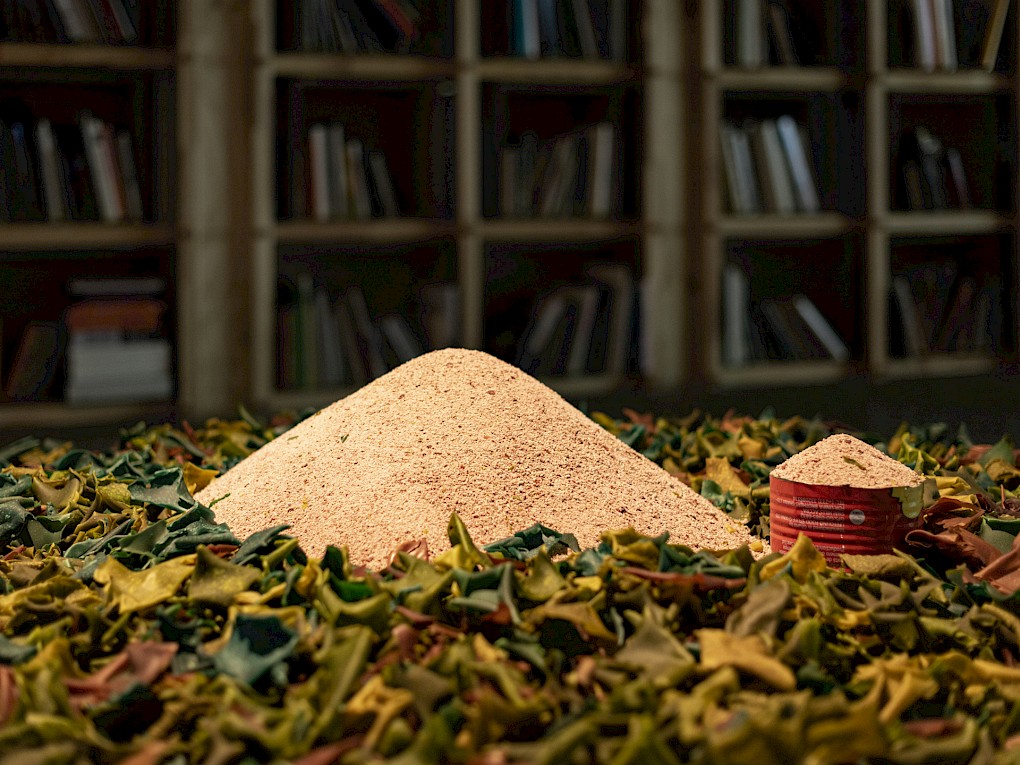
Team
ARTISTIC DIRECTION & Concept Bonaventure Soh Bejeng Ndikung
CURATION Juan Pablo García Sossa, Hajra Haider Karrar
Curatorial Assistance & Production Sagal Farah, Billy Fowo, Hubert Gromny, Kelly Krugman
General Management Lema Sikod, Lynhan Balatbat-Helbock
Project Management Onur Çimen, Lia Milanesio
Communications Anna Jäger
GRAPHIC DESIGN & HANDOUT Juan Pablo García Sossa
ART HANDLING Waylon D’Mello, Santiago Doljanin, Willem van den Hoek, Kimani Joseph, Iga Świeściak, Agnieszka Różyńska
TECH Bert Günther
LIGHT DESIGN Emilio Cordero
Funding Funded by the TURN2 Fund of the Kulturstiftung des Bundes (German Federal Cultural Foundation). Funded by the Beauftragte der Bundesregierung für Kultur und Medien (Federal Government Commissioner for Culture and the Media), and with support by the SAVVY friends.
